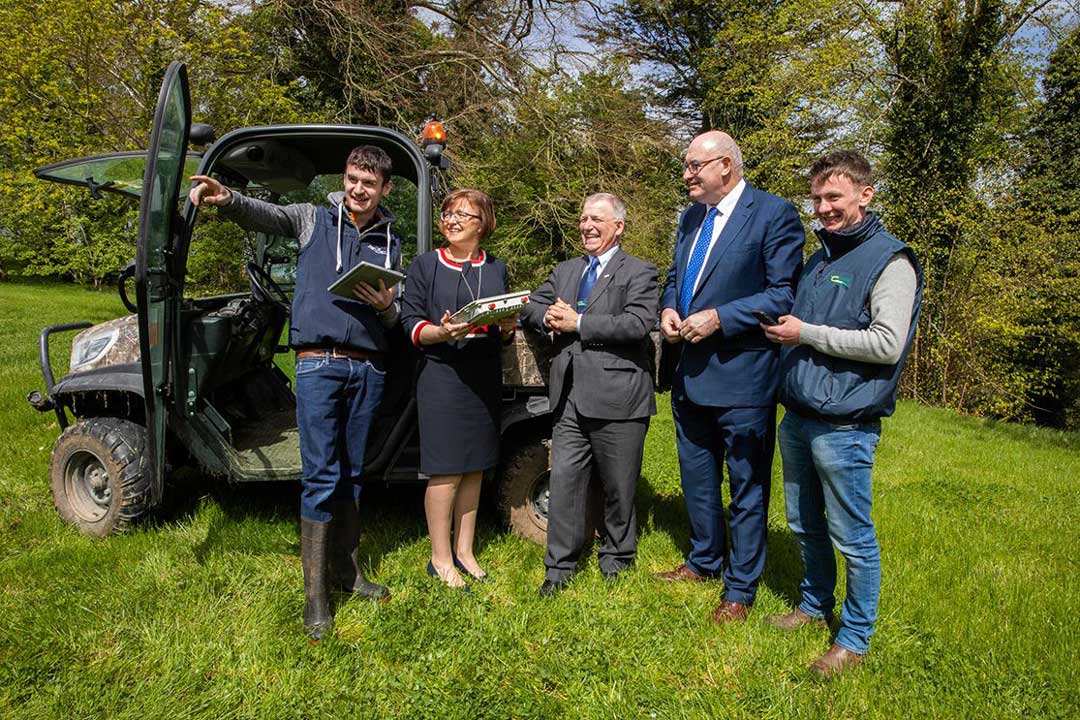In April 2019, Microsoft Ireland launched an Airband pilot project in partnership with the Irish Government’s farming advisory body and local Irish Internet service providers. Microsoft’s Airband initiative uses TV white spaces technology to bring broadband connectivity to rural or underserved areas.
The European Commission’s most recent Digital Economy and Society Index report found that around 80 per cent of European households are now covered by fast broadband, up from 76 per cent the previous year. This is great progress towards ensuring that all EU citizens can benefit from the digital economy.
However, in my home country of Ireland, 26% of premises still don’t have access to highspeed broadband. That’s why I was thrilled when Caitriona Hallahan, Managing Director of Microsoft Ireland, recently signed a Memorandum of Understanding (MoU) with the Irish Government’s agriculture and farming research advisory body, Teagasc, agreeing to work together on projects involving precision agriculture, big data, and artificial intelligence (AI).
The first project to kick off under this MoU is a pilot initiative aiming at providing remote internet connectivity to the Teagasc Agricultural College, located in County Cavan, near the border between Northern Ireland and the Republic of Ireland. Microsoft will deploy Airband technology so students can use Internet-dependent technology, including AI and data analytics, while working and learning in the fields and outbuildings that sprawl across the 220-hectare campus.
The Airband initiative has already made an impact in the United States, in parts of South America and Africa, and an incredible team of dedicated Microsoft colleagues in the U.S. and Ireland have worked hard to realize the first Irish Airband pilot project. This is only the second European pilot, following a first deployment of the technology in France’s Gers region. Lessons learned from the Teagasc project will inform future deployment of Airband in rural or isolated areas of Europe.
The potential of this technology to tackle Europe’s digital divide has been recognized by EU policymakers, including Vice President of the European Parliament, Mairead McGuinness, and the EU Commissioner for Agriculture and Rural Development, Phil Hogan – both of whom attended an event hosted at Teagasc Agricultural College to mark the Airband launch.
Speaking at the event, Commissioner Hogan drew parallels between the Airband initiative and the European Commission’s Smart Villages programs:
‘From 2020 onwards I want and expect to see an upsurge Smart Villages projects where local initiative is supported by EU funding through programmes such as the Rural Development Programme (RDP) or LEADER, along with partners from the private sector such as Microsoft, who can bring innovative solutions like Airband to the table.’
While it is early days, the potential of Airband technology is clear – in Ireland and further afield. Within the context of a recently announced, EUR 3 billion rural broadband programme aimed at closing the connectivity gap, the Irish Government has committed mostly to providing fibre to the home connections. However, in about five per cent of premises – which are the hardest to reach – alternative wireless solutions will be required.
Airband is a concrete example of how Microsoft is partnering with governments and communities to deliver technology solutions that really work and can transform lives. Vice-President McGuiness put it perfectly when she said how it represents ‘an incredible coming together of all the right people at the right time and in the right order’.

